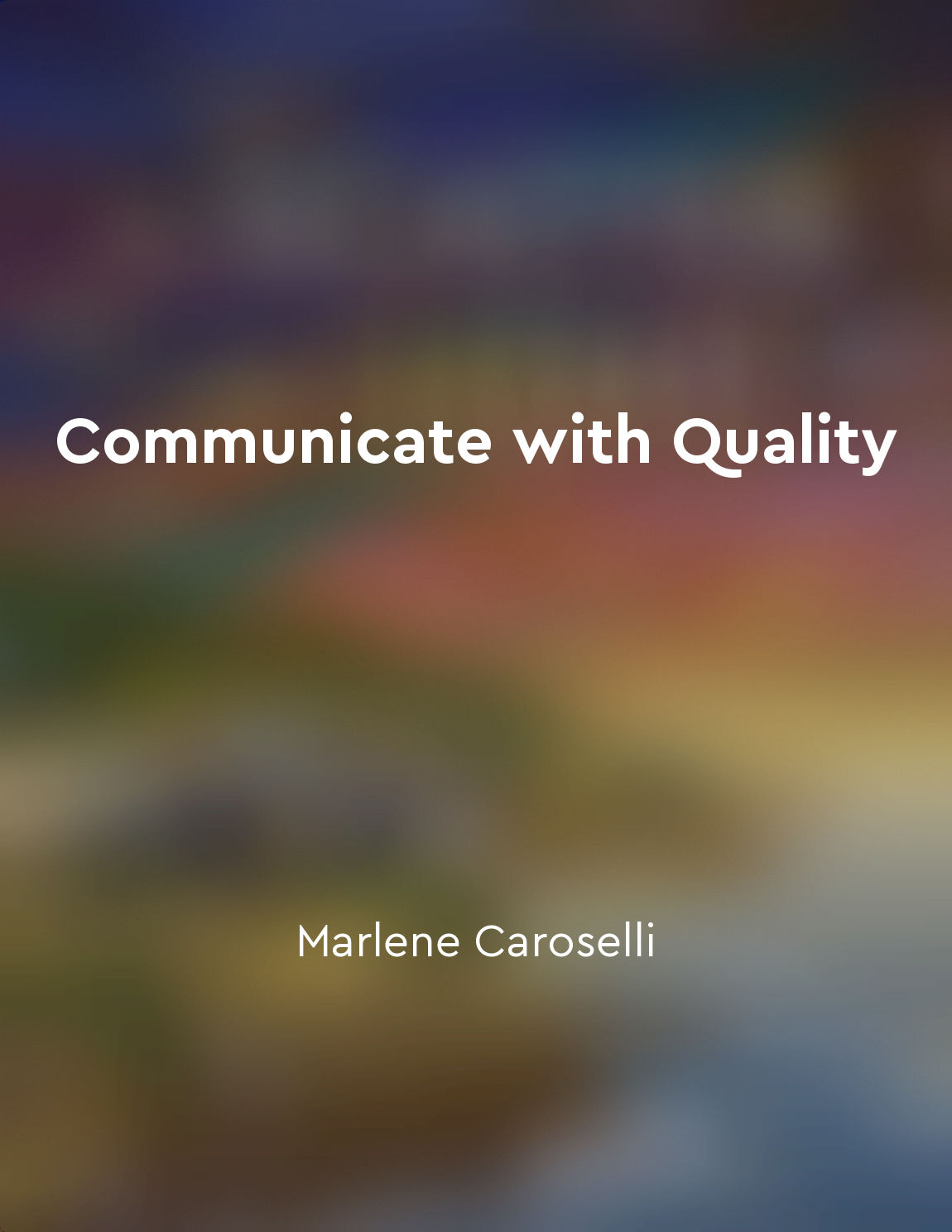Audio available in app
Nonverbal cues play a significant role from "summary" of Why men don't listen and women can't read maps by Allan Pease,Barbara Pease
Nonverbal cues are an essential component of communication, often conveying more information than words themselves. These cues can include gestures, facial expressions, posture, tone of voice, and even personal space. While verbal communication provides the content of a message, nonverbal cues give insight into the emotions and intentions behind that message. This is why it is crucial to pay attention to these nonverbal signals in order to fully understand what someone is trying to communicate. In many cases, nonverbal cues are more reliable indicators of a person's true feelings than their words. For example, someone may say they are happy, but their crossed arms and furrowed brow suggest otherwise. By being attuned to these nonverbal signals, we can better interpret the meaning behind someone's words and respond accordingly. This is especially important in situations where there may be a disconnect between what is being said and what is actually being felt. Moreover, nonverbal cues play a significant role in forming social bonds and connections. For instance, a warm smile, a friendly handshake, or maintaining eye contact can all signal openness and receptiveness to others. Conversely, avoiding eye contact, fidgeting, or standing with crossed arms can convey defensiveness or disinterest. Understanding and utilizing these nonverbal cues can help in building rapport and establishing trust in various social interactions. In addition, nonverbal cues are also crucial in romantic relationships. Research has shown that body language and other nonverbal signals play a significant role in attraction and mate selection. From subtle touches to prolonged eye contact, these cues can indicate interest, affection, and desire. By being aware of and responsive to these nonverbal signals, individuals can enhance their communication and deepen their connections with their partners.- The concept that nonverbal cues play a significant role in communication is a fundamental aspect of human interaction. By paying attention to these cues and understanding their impact, we can become more effective communicators, build stronger relationships, and navigate social situations with greater ease and success.
Similar Posts
Emotional appeals can sway an argument
Emotional appeals have the power to change the course of an argument. When emotions come into play, logic and reason often take...
Eliminate distractions for effective communication
To be an effective communicator, it is crucial to eliminate distractions that may hinder the message from being clearly underst...

Practice active listening to show genuine interest in others
Active listening is a skill that goes beyond merely hearing words. It involves fully engaging in a conversation, showing genuin...
Communication is key in organizational success
The success of an organization hinges on effective communication within its various levels. Without clear and cohesive communic...
Feedback is important for improvement
Feedback plays a crucial role in the improvement of individuals in the workplace. It provides valuable insights into our perfor...
Recognizing others' perspectives leads to better understanding
When we take the time to truly see things from someone else's point of view, we open ourselves up to a whole new level of under...
Empathy increases influence
When we connect with others on an emotional level, we have the power to influence them in ways we never thought possible. This ...
Use questions to guide discussions
When engaging in discussions, it is crucial to ask questions that lead the conversation in a specific direction. By using quest...
Ask questions to show interest
To show that you are interested in someone, ask them questions. The more you ask, the more you show that you care. Questions ar...
Trust is built on understanding
Trust is a delicate and precious commodity that can only be earned through understanding. It is not something that can be bough...

